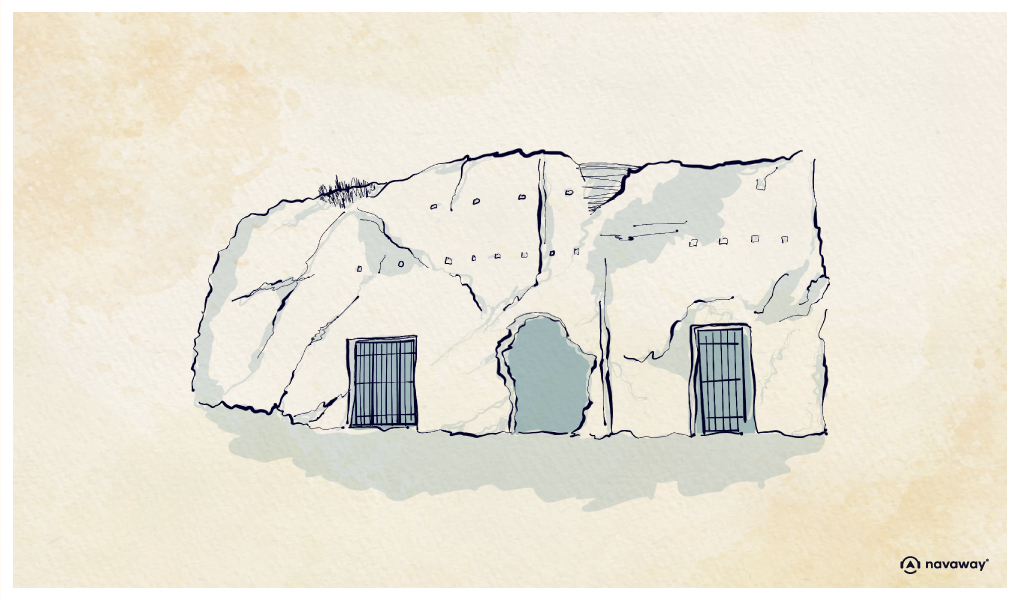
Prison of Socrates

This point of interest is available as audio on the tour: Visit Athens, At the roots of western civilization
Socrates, the founding father of philosophy and free thought, is an iconic figure inextricably linked with ancient Greece and Athens in particular, as this is where he spent all his life. The world-famous philosopher was born in the Greek capital around 470 BC, and is said to have died here, on the Philopappos Hill, in this unusual edifice that was once used as a prison. But let’s take things from the beginning, shall we? Socrates, son of a midwife and a stonemason, learnt his parents’ trades from an early age. Yet he found himself enchanted by the ancient Agora, the city’s central square, where he spent his time chatting with the Athenians and trying to understand them. At the age of 18, he gained his political rights, a privilege not enjoyed by many back then. He quickly became known as a philosopher throughout the city, though he was frowned upon by some Athenians because of his looks. You see, beauty was a big thing in Athenian society, and Socrates –short and stocky– did not exactly live up to the standards. Through his endless discussions in the Agora, he came up with a teaching method still used today: the Socratic method. He’d basically ask his interlocutors various questions to find out what they knew and what they didn’t, so as to get to the truth by challenging their preconceived ideas. Not everyone liked his approach, and Socrates was met with the wrath of many Athenians who felt he had little respect for the city’s institutions. Besides philosophy, Socrates also fought in several battles of the Peloponnesian War; he emerged victorious and was distinguished for his bravery. And yet, despite all this, at age 70, he was accused of corrupting the youth and disrespecting the city’s gods. At his trial, he defended himself using his very own method, with a hint of irony and confidence, which didn’t exactly please his accusers. They called him arrogant and sentenced him to death by a majority of just three votes. His friends begged him to escape but he refused, arguing that “he’d rather suffer injustice than commit it” – he accepted his fate there and then. After a month in prison, he was forced to drink the hemlock and he eventually died in his cell. Socrates left no written texts, but his ideas were spread by his students, Plato and Xenophon, through their own writings. To this day, Socrates is considered the father of moral philosophy, while Plato himself described him as the wisest and fairest of all men.


Discover Athens with app
An interactive guide through the most beautiful streets, squares, and districts
29 fun audioguides full of historical facts, anecdotes, and legends





Comments